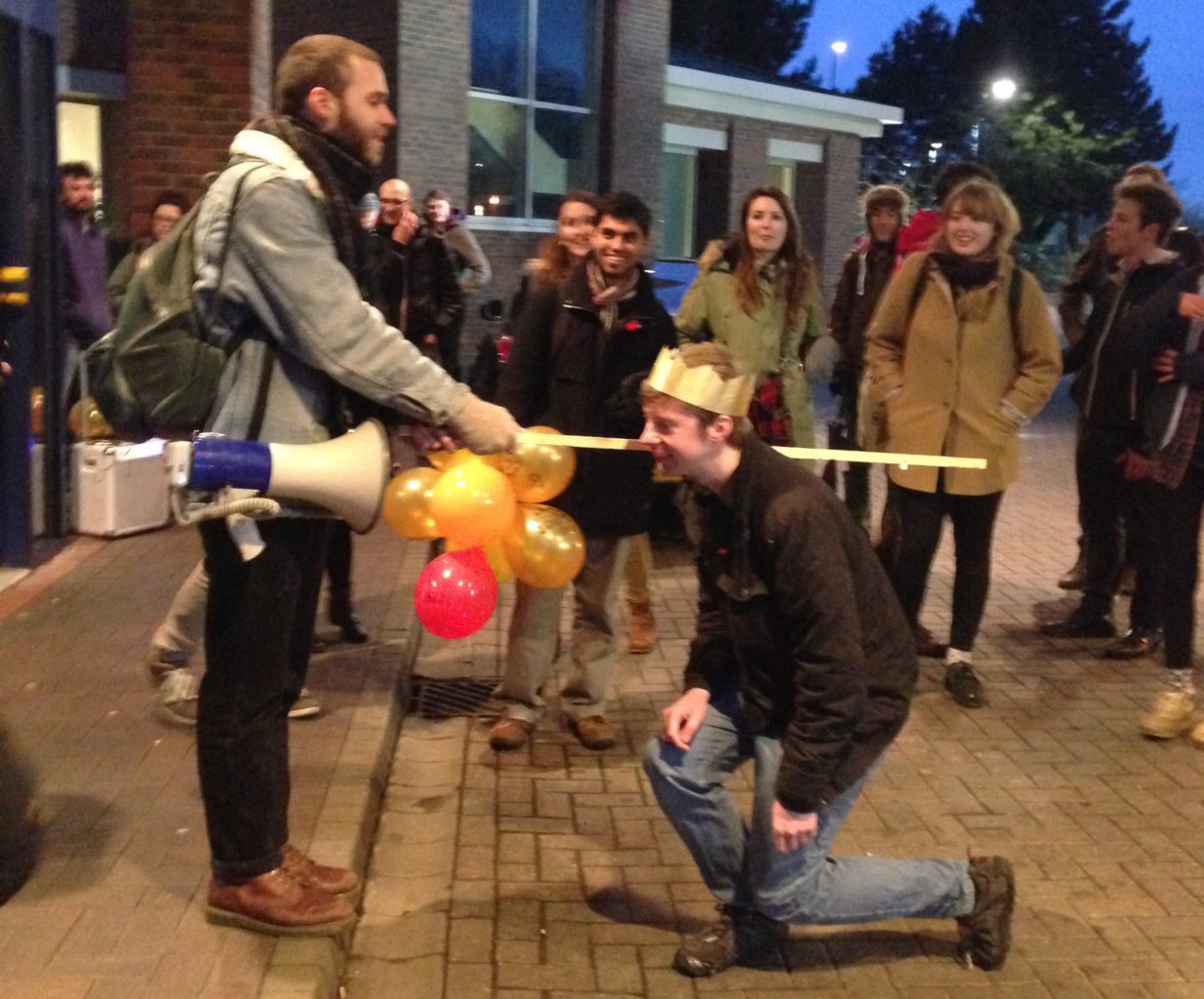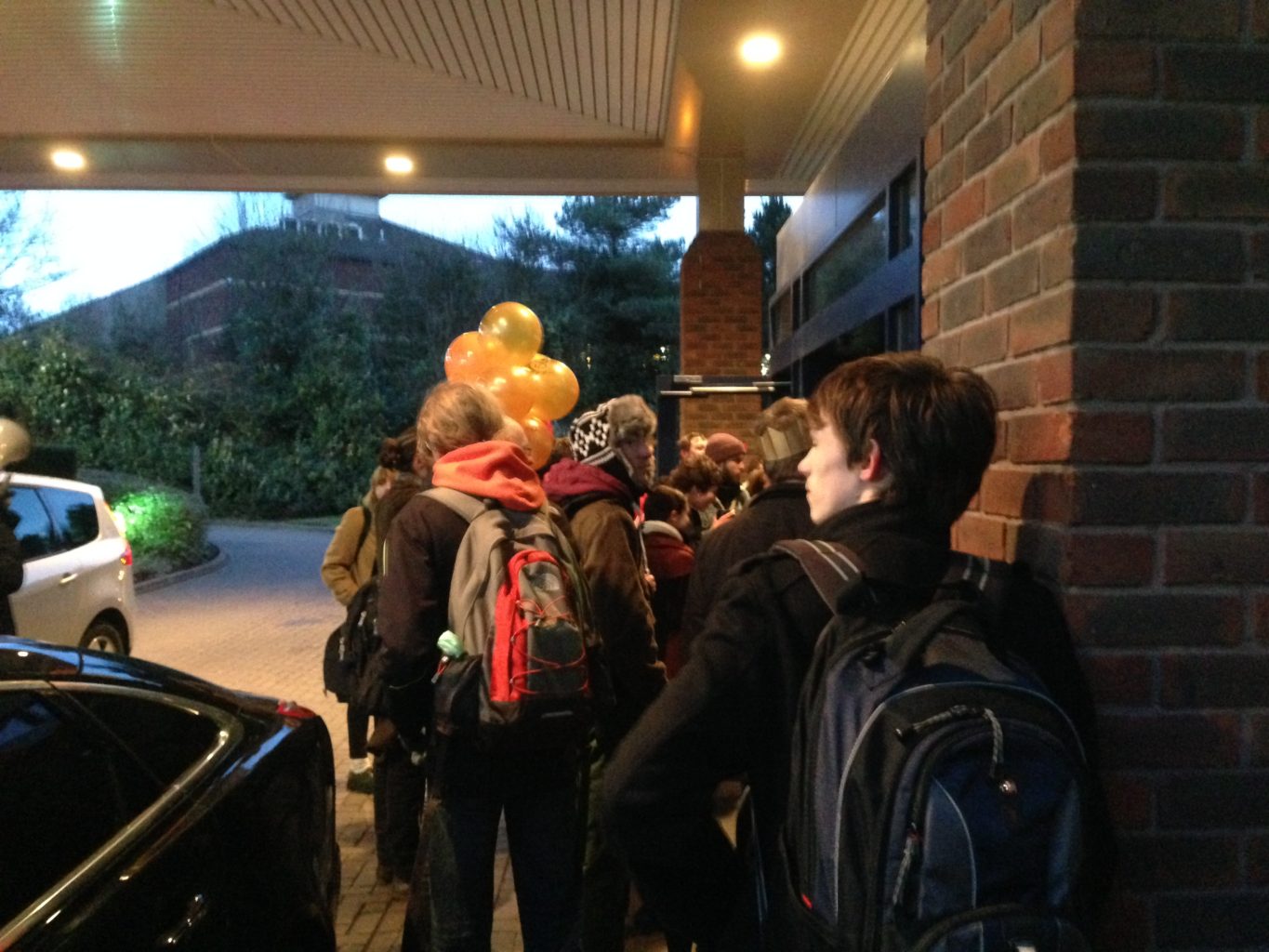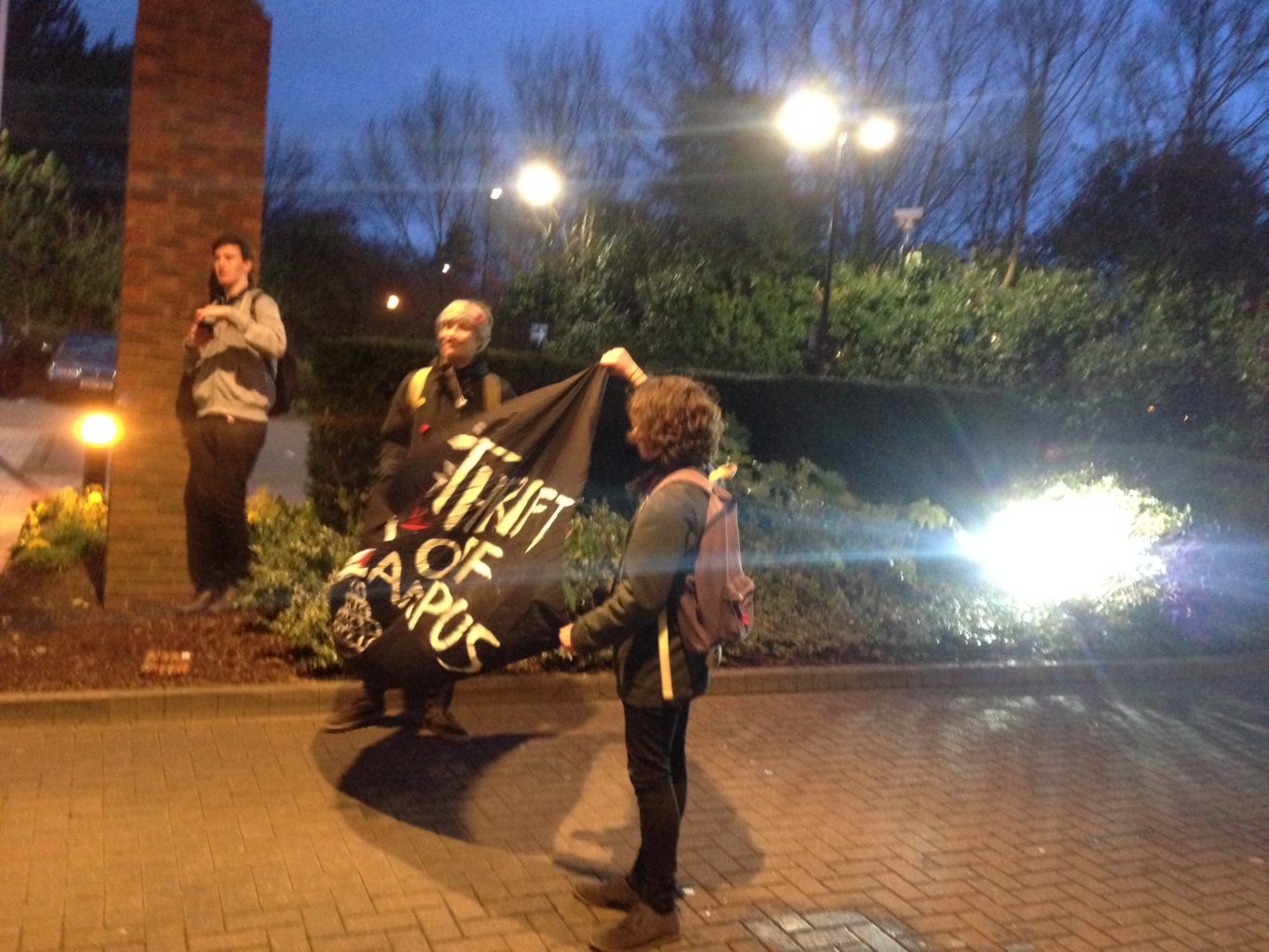Students ‘party’ for un-Thrift-iness
Warwick students took part in a satiric ‘Thrifty Payday Party’ on Thursday 15 January in protest against vice-chancellor Nigel Thrift’s pay and pay rises.
The ‘Payday Party’, which took the form of an ironic celebration of the vice-chancellor’s £16,000 pay rise last year, was organised by Warwick for Free Education (WFFE), who also took part in the #CopsOffCampus protest in December 2014.
The group claims that the pay rise, which had brought Professor Sir Thrift’s salary to £348,000, comes at the expense of other staff.
The event began at the Piazza at 4pm, where protestors gathered to hear speeches and chant against the pay rise, shouting: “348K, Nigel Thrift go away!” and “Whose university? Our University!”, while music played out of a portable amplifier.
The event was originally planned to take place outside Senate House. However, organisers amended the location of the event after postgraduate students complained that it would cause inconvenience to them.
The group then moved towards University House, carrying banners while chanting and playing music. The protestors were however denied entry by security on the grounds that it would disrupt the building. The group therefore waited outside calling for the vice-chancellor to come out and see them.
The ‘party’ continued as students pretended to knight each other with a wooden stick in reference to the vice-chancellor’s knighthood.
The group then travelled towards the Scarman Conference Centre. Music was turned off and the group stopped chanting in order to enter the building. ‘Party goers’ moved into the bar area and occupied a small table, at which point the venue’s staff began to close the bar and a member of security came to stand nearby.
At about 5.20pm, the group vacated the area and ended the event.
Second-year Philosophy student Ollie Sanderson-Nichols who attended the event as a member of WFFE said: “we are today celebrating the fact that Nigel will have earned on this day the equivalent of his lowest paid workers’ yearly salary, which – I don’t know about you – seems ridiculous to me.”
Alex Rossetti, a first-year Computer Science Undergraduate added: “I believe that since he’s been vice-chancellor, his salary has gone up 27 per cent, and at the same time the average pay of staff has actually gone down… it’s about treating workers at the University fairly.
“At the same time we have postgraduate staff not making minimum wage. That seems ridiculous when you factor in the huge amounts he’s earning every year.”
According to Sanderson-Nichols, the decision to have the event presented as a faux-celebration rather than a traditional protest was intended to increase the accessibility of the WFFE’s methods and get new people involved in “less of an intense way”.
He added: “it’s great to have a real diversity of actions going… engaging us in a different way from what you might expect. We’re very much an open organisation, open to everybody and we don’t want to put people off by hammering the same hard-line protests.”
However, other students who witnessed the event did not find its methods particularly effective. Josh Mann, a second-year Psychology student, said: “You need a larger audience. You need to target where there are more people, and especially at this time of day there aren’t a lot.”
Cletus Chan, a third-year Theatre Studies undergraduate, was also at the scene: “I think it’s got a bit confused in the sense that there’s a police brutality protest and then a ‘Cops Off Campus’ protest, and now it’s back to wages… it’s a lot of different things that they’re trying to protest against… I feel like there should be one unifying symbol, or at least person to try and clarify that for everyone.
“We attended that first police brutality one, and we were like ‘yeah, it’s pretty good showing solidarity with students’, and then a speaker mentioned something about ‘cops out of society’, and then it got a little bit weird and I feel like that kind of divided the students a little bit.”
In an interview with media societies in May 2014, Prof Thrift responded to questions about his pay rises, saying: “my pay is not something I actually have control over, that is something that is involved with the remuneration committee of the university… go and ask the head of the remuneration committee.”
However, Rossetti disagreed with the idea that Professor Thrift has no effect on the decision to increase his pay: “he doesn’t actually sit in the committee when his pay is decided, but he probably has an influence over who is there, and he probably actively puts suggestions in about his impact on the University.”




Comments